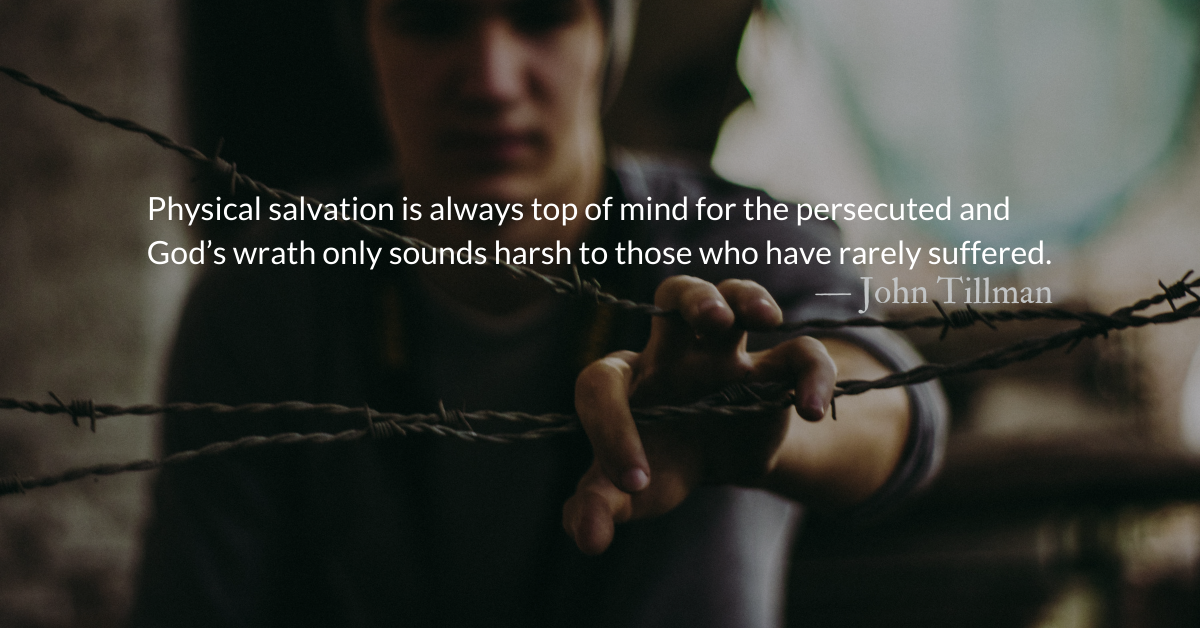Scripture Focus: Ezekiel 31.10-12, 18
10 “ ‘Therefore this is what the Sovereign LORD says: Because the great cedar towered over the thick foliage, and because it was proud of its height, 11 I gave it into the hands of the ruler of the nations, for him to deal with according to its wickedness. I cast it aside, 12 and the most ruthless of foreign nations cut it down and left it.
18 “ ‘Which of the trees of Eden can be compared with you in splendor and majesty? Yet you, too, will be brought down with the trees of Eden to the earth below
Psalm 79.10-13
10 Why should the nations say,
“Where is their God?”
Before our eyes, make known among the nations
that you avenge the outpoured blood of your servants.
11 May the groans of the prisoners come before you;
with your strong arm preserve those condemned to die.
12 Pay back into the laps of our neighbors seven times
the contempt they have hurled at you, Lord.
13 Then we your people, the sheep of your pasture,
will praise you forever;
from generation to generation
we will proclaim your praise.
Reflection: Hearing the Groans of the Prisoners
By John Tillman
The psalmist, living under Babylonian exile, begs God to hear the “groans of the prisoners.” This is more than a reference to the writer’s own groaning. The poet is referencing the groans which caused God to “come down” (Exodus 3.7-9) to aid his people when they were oppressed by Egypt.
There are examples in scripture of both physical and spiritual salvation but typically they are connected or blended together. Moses’ liberation of the Jews from Egypt is the most iconic example of physical salvation and is the archetype biblical writers look to as a metaphor for spiritual salvation.
The ultimate example of God “coming down” is the incarnation of Jesus. We may think of Christ’s first advent as primarily about spiritual salvation, however, Mary is inspired by the Holy Spirit to sing of oppressors being toppled and the lowly being comforted. (Luke 1.52-53)
Physical salvation is always top of mind for the persecuted and God’s wrath only sounds harsh to those who have rarely suffered. But God has more than physical suffering in mind and more sufferers than just his people in his heart.
Our readings from Ezekiel reference Egypt more directly as next on the list in Ezekiel’s long list of prophecies, judgments, and laments for other nations. These passages demonstrate that God is concerned with, and has dominion over, all nations, expressing wonder at their successes and anger at the harm they bring to others.
Why does God address these other nations? Why does God lament their falls and attempt to teach other nations by the example of their punishment?
Ezekiel realizes, and so must we, that all humans are not only under God’s dominion but God’s affection. God will not only visit judgment on them for evil but visit them in compassion during their oppression. Time and time again, God condemns through the prophets the same things—greed, pride, abuse of power.
He is not just “our” God. He hears the cries of all those oppressed by their rulers. He judges all rulers and leaders who conduct themselves with pride and irresponsibility.
God is hearing the groans of those who are prisoners. Are we?
Who is suffering that we have ignored? God hears them.
Who is crying out that we would silence? God hears them.
Pray this week, that we would hear the groans…not seeking to be consoled as to console. (Prayer of St. Francis)
*Music: Prayer of St. Francis — Sarah McLachlan
Divine Hours Prayer: The Request for Presence
Be seated on your lofty throne, O Most High; O Lord, judge the nations. — Psalm 7.8
– Divine Hours prayers from The Divine Hours: Prayers for Summertime by Phyllis Tickle
Today’s Readings
Ezekiel 31 (Listen – 3:31)
Psalm 79 (Listen – 1:50)
Read more about Freedom for Prisoners
Sin is our crime, our addiction, and our prison. Yet Jesus comes to free us nonetheless.
Read more about From Slavery to Service—Worldwide Prayer
May we leave behind our slavery and enter his service becoming thankful workers for peace.







